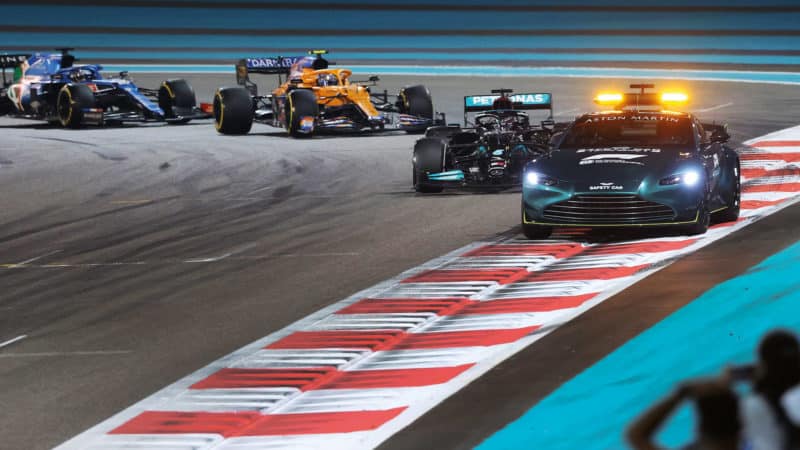However, Brown said that the focus should be much wider than the events at the end of last season, saying that there are “systemic issues” that have been visible for at least two years.
“It is obvious to focus on the events of Abu Dhabi at the end of last season, which are the subject of an FIA investigation, but this was a symptom rather than cause in my view,” he wrote. “There have been systemic issues around alignment and clarity on who makes the rules – the FIA or the teams – that have manifested themselves in the past couple of years, at times in a high-profile way.
“The signs of organisational difficulties could be seen at the 2020 Australian Grand Prix and at last year’s Belgian Grand Prix, both hallmarked by a seeming lack of preparation for the events unfolding and temporary inertia on the solutions.
“The election of Mohammed Ben Sulayem last December as the new president of the FIA provides the opportunity for collective reform of the way Formula 1 operates.
“Previous administrations pursued a mainly autocratic style of governance, so to point the sport in the right direction it was necessary to take a more consultative approach with teams and stakeholders. But now the sport has been successfully reset, moving forward there is a need to shift back to stronger, more directive leadership and governance at the top of the sport.
“It is clear that some of the rules and their governance are not acceptable as things stand. No one is happy with the inconsistency in the policing of the regulations, but which has been habitually exploited by teams for competitive advantage. I have said before that the teams have too much power and it needs to be reduced. We have a significant role in the drafting of the regulations and governance of Formula 1 and that influence is not always driven by what is best overall for the sport.
“I am confident that we will see increased leadership from the FIA and F1, and that collectively as custodians of the sport we will focus on evolving the sport and not shirk responsibility when it comes to tough decision-making.”

Election of Ben Sulayem brings the chance for reform, says Brown
The McLaren boss also spoke of his excitement at the dawn of the 2022 season, pointing out the rules reset and regulatory changes that should offer closer racing and unpredictable results.
He called for officials to continue leading the sport in its current direction, by ensuring costs do not spiral again, and by restricting the benefits of running a B team, as Red Bull does with AlphaTauri.
“We must continue to drive economic sustainability across the sport,” write Brown. “Some teams still look for excuses to raise the cost cap and win world championships with chequebooks. The ongoing lobbying by certain teams to increase the cost cap for sprint race damage is a continuing example.
“These teams continue to demand a raise to the cost cap by an inordinate amount of money, despite the clear evidence that little damage was incurred during these races last year, in a thinly veiled attempt to protect from their competitive advantage being eroded.





